My Own Blood Never Looked So Good
 (I had my wife take this picture--I want to remember today.)
(I had my wife take this picture--I want to remember today.)
We're about halfway through 2014. How are you doing on your goals for the year?
Pull-ups
One of my goals for the year was to do 20 strict pull-ups, unbroken. ("Strict" means straight pull-ups without any swinging or "kip;" "unbroken" means 20 without coming off the bar.) This was a stretch goal for me, because at the end of 2013 I could at most do 1 or 2 pull-ups, even with a kip. My whole life had been like that: I've always been bad at pull-ups.As I've mentioned previously on this blog, I've been ruthless this year about getting up and working out early in the morning every day. Often, my morning workout called for pull-ups, and whenever that was the case, I'd use a resistance band to make them easier. But this morning, I decided to try the workout (which called for pull-ups) without a band. Over the course of today's workout, I ended up doing 60 pull-ups (in sets of 10, broken up by?other exercises), but the best part was that I was able to do the first set of 10 unbroken! (I ended up tearing my hands, but it was worth it.) So, I think my goal for the year is definitely possible.I know it doesn't sound like much, and for some of my dear readers my lowly pull-up total is a joke, but for me this morning was a big deal. I've never been so satisfied to see my own blood as I was this morning.
6 Months Left in 2014
On some of my other 2014 goals I've made similar progress, on others I have some ground to make up. Either way, as difficult as the discipline of pursuing goals is, the satisfaction of accomplishment outweighs the difficultly.So, what will you use these next 6 months to accomplish? Memorize a psalm? Run a 10k? Save $1,000? Let me know in the comments, below.
What's Best About America (& Why I'm Worried)
(The crowd really gets going at the "rockets' red glare" part, about 33 seconds in--makes my hair stand up. USA!)[7/8/14 update at 9:36 AM CDT: I've slightly edited the post for clarity.]The Framers of the American Constitution had a deeply-held belief in human sin. That clear-eyed expectation of sin?particularly the expectation that anyone is capable of using power in oppressive ways, and that given time and opportunity, anyone probably will use power in oppressive ways?is what I like best about America.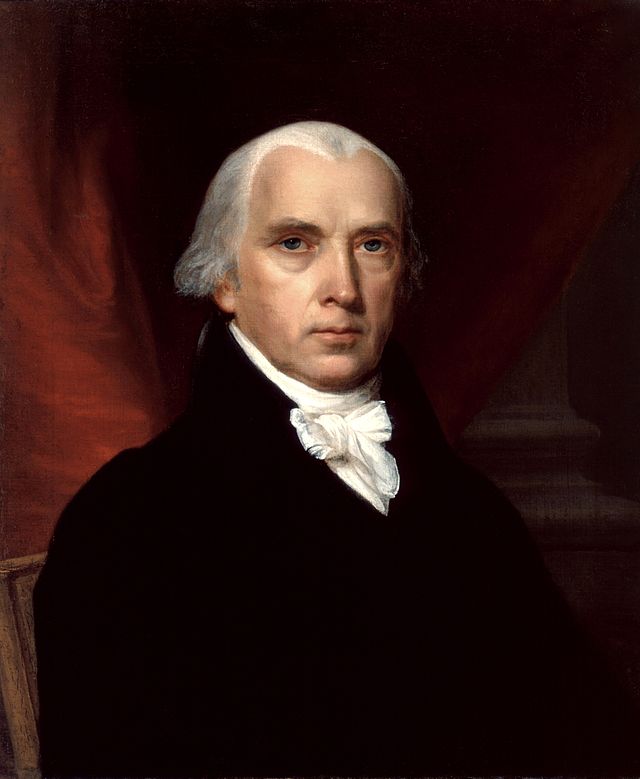 James Madison, writing in 1788 in?The Federalist #51 under the pseudonym "Publius," had this to say about the underlying philosophy of the America Constitution:
James Madison, writing in 1788 in?The Federalist #51 under the pseudonym "Publius," had this to say about the underlying philosophy of the America Constitution:
Ambition must be made to counteract ambition. The interest of the man must be connected with the constitutional rights of the place. It may be a reflection on human nature, that such devices should be necessary to control the abuses of government. But what is government itself, but the greatest of all reflections on human nature? If men were angels, no government would be necessary. If angels were to govern men, neither external nor internal controls on government would be necessary. In framing a government which is to be administered by men over men, the great difficulty lies in this: you must first enable the government to control the governed; and in the next place oblige it to control itself. A dependence on the people is, no doubt, the primary control on the government; but experience has taught mankind the necessity of auxiliary precautions.
Madison and the other framers of the Constitution were so aware of the human capacity for sin that they set up a system of checks and balances to limit sin's effects, so that power couldn't be too closely-held in any one set of sinful hands. Madison didn‘t merely want to keep permanent power away from his political enemies, he also wanted to keep permanent power away from his political allies. Madison was aware that his ideological allies were as likely to fall into sin as his ideological opponents. So, Madison and the Framers built a permanent mistrust of human nature into the American Constitution. This brilliant design has served us well for the last 200 years or so. We've had a lot of problems, but not anarchy and not tyranny.The best thing about America is the wisdom our Founders had to recognize that humans are deeply sinful creatures.? This insight of human sinfulness is, surprisingly, not universally acknowledged. 100 years ago, for example, many intelligent, educated people in the West believed that humans were on a path towards perfection. And then came the Somme.Sin is a part of every human life, and every human situation. We cannot perfect ourselves, cannot trust our best intentions. All of us, even the best-intentioned, are capable of acts of great evil. In the past 200 years, there have been countless revolutionary movements that promised freedom and justice, and a great number of them have made things worse for ordinary people rather than better. The reason revolutionary reality is so much worse that revolutionary rhetoric is because the leaders of these revolutions had no suspicion of their own intentions, no awareness that their hearts were often no more holy than the enemies they wanted to overthrow.In America, this was not the case. James Madison??if men were angels??knew that men and women were far from angelic, and he and the Framers took the human capacity for sin into account as they drew up our Constitution and the Bill of Rights.
Why I'm Worried
But I'm worried today that we've forgotten what we once knew. Today what most worries me about America is that many of us no longer believe in the universality and inevitability of human sin in all situations and in all lives.Don't misunderstand: it's not that we no longer believe in sin in general; rather, it's that we don't believe in the universality of sin; we no longer believe that?we ourselves and our people could be sinful in our actions.The American Left--particularly the progressive wing--seems only to see sin where it wants to see it.? The Left is quick to see possibilities for sin in for-profit corporations, among the rich, or in cultural systems that have in the past been used to oppress the weak. The Left is correct to see the possibilities for sin in these areas.But the Left seems blind to the possibilities for sin among government bureaucracies, among the poor, or in the progressive push to completely dismantle so-called traditional morality. The Left also seems unable to question its own crusading impulse, unable to concede that perhaps it could be mistaken in its inclinations. This is an extremely dangerous inability.To cite one recent example: The Left correctly complains that much of right-wing rhetoric about President Obama is hysterical and vitriolic. But the Left‘s response to the Supreme Court‘s Hobby Lobby case has itself been hysterical and vitriolic. Steve Coll, writing for The New Yorker‘s website, compared the Green family (the owners of Hobby Lobby) to the Taliban. I had to read the article twice to be sure he wasn‘t making a joke. Unfortunately, he appears to be in earnest; Mr. Coll also appears to be unable to see the sad irony in his use of the comparison.The American Left could use more of Madison‘s clear-eyed view of human sin. The men and women on the Left should be aware that they are as capable of using power in oppressive ways as anyone else.But my conservative readers should not be feeling too good about themselves, either. The American Right also seems only to see sin where it wants to see it. The Right is quick to see possibilities for sin among government bureaucracies, among the poor, or in the progressive push to dismantle traditional morality. The Right is correct to see the possibilities for sin in these areas.But the Right seems blind to the possibilities for sin in capitalist structures, among the wealthy, or in its media-entertainment complex. And the Right seems rarely to apply it's criticism of the Left to itself.The Right often accuses the Left of being out-of-touch with reality, unable to see the hard truths about the inevitability of sin in all human endeavors, that the Left is naively idealistic. But, the Right is capable of making the same mistakes and ignoring Madison's wisdom. To cite the clearest example of the last decade, consider the Iraq War and occupation. The leaders and planners of the war and subsequent occupation suggested that it would be relatively simple and inexpensive to remake Iraqi society. I have a hard time believing Madison would have been so sanguine. A healthy skepticism of human intentions--particularly with regard to human use of political power--and an abiding belief in the pervasiveness of human sin should have caused the architects of the Iraq War to expect more more difficulty when they laid out their plans. For example, a Madisonian understanding of the human use of power to oppress should have given the Iraq War architects the expectation that the leaders in the new Iraq would use violence against their political enemies in the same way that Saddam Hussein had formerly used it against them. Unfortunately--and I am of course only speaking as an outsider--these war architects seem to have ignored Madison's insight, with predictable results. When you forget about the inevitability of human sin and forget that you are capable of making the same mistakes that you have accused your opponents of making, you inevitably find yourself in a mess.
What the Left and the Right Share in Common
Here's the point: both the Left and the Right are capable of committing the sins that they have accused each other of making. (I know that's an obvious point, but I often find it helpful to point out the obvious.) I'm not arguing for some kind of middle or third way or saying that there is no substantial difference between the Left and the Right in American life. Rather, I'm just pointing out that a more Madisonian skepticism of our own righteousness would be beneficial for each of us, and for our ideological allies. The reason both the Left and the Right are capable of making the same mistakes is because they forget about the human capacity for sin, at least in regard to their own ideas and leaders. Both, in their own ways, believe that their ideas and practices can lead us toward perfection, that their desires are pure enough to be exempt from tendencies to self-delusion and abuses of power, and that the purity and righteousness of their desires justify any means to achieve those desires. This shared belief in their own righteousness?one of the things they have in common?is foolish and, I?d argue, un-American. And it causes me to worry. So, what should we do?
Two Things I'm Going to Do More Of
I?d like to see two changes in American public life. But, as with all changes, these must begin with each of us. I have control over no one‘s behavior but my own, just as you have no control over anyone but you. So, I want to see more of these two things in my own life:First, we need to remind ourselves that, to quote scripture, all have sinned and fallen short of the glory of God. In other words, no one is perfect, and no one‘s motives are perfectly pure. Each of us is capable of abusing power and justifying lies for our own, selfish ends. There but for the grace of God go I. I am no better than my enemies. I want to be reminded often of this sobering truth.The Christian practice of confession is valuable because it is impossible to pray a corporate prayer of confession and fail to hear the words applied to yourself. In my tradition, for example, we have a prayer of confession that goes like this:
Merciful God, We confess that we have not loved you with our whole heart. We have failed to be an obedient church. We have not done your will, we have broken your law, We have rebelled against your love, We have not loved our neighbors, And we have not heard the cry of the needy.
Every time I pray those words, I know that they apply to me: I am a sinner. I judge myself by my intentions but my enemies by their actions. In times of honesty and silence, I am forced to admit that I am not better than my enemies.Second, we need to confess our own sin and admit when our people have sinned. We cannot condemn the dirty tricks of our political and ideological enemies while turning a blind eye to those of our own people, whom we want to believe justified in their actions because we believe their ends to be so righteous. It would be powerful to hear people say, Yes, I voted for him, and yes, I broadly agree with his position on X issue, but he was dead wrong in how he spoke about his political enemies, and dead wrong to pursue power in that way, and I don‘t want to win if that‘s the way victory is achieved. I'd like to demonstrate more of this admission and honesty in my own life.What I like best about America is our Constitution‘s undergirding suspicion of power, even when used by seemingly good people. That suspicion has served us well for the last 200 years, and has kept us safe. We ignore that suspicion at our peril, but if we recover it in our own lives, our families, and in our public life together, it has the potential to keep us safe in the future.
?The Framers were not exempt from the temptation to ignore their own tendencies to sin, and the inclusion of slavery in the Constitution proved..?I am not suggesting that the current Iraqi government is as violent or oppressive as that under Saddam Hussein, but merely making the point that the years of sectarian violence that have followed Saddam Hussein's overthrow should not surprise us.
Ordination Day
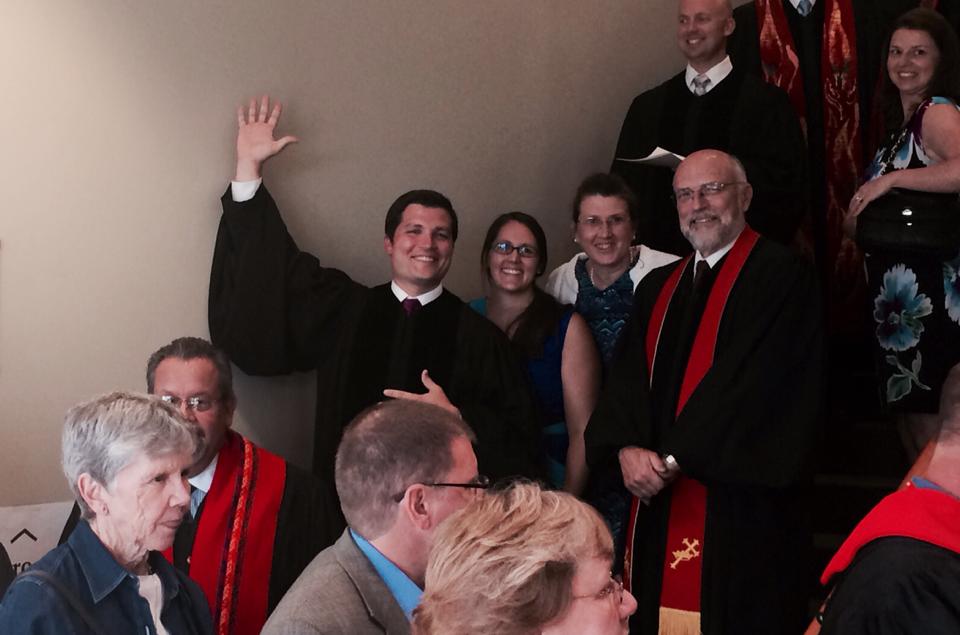 Today was a red-letter day.I don't remember my granddaddy baptizing me.I do remember my confirmation, kneeling on the lumpy pad at the communion rail in my little church, my dad--my pastor--placing his hands on my shoulders, charging me with living into the faith that the saints in the church had passed down to me.I remember my wedding day.I remember when my son was born.And I'll remember today, my ordination day. A Red Letter Day.It's very late and I have to get up early tomorrow, but here are some unsystematic thoughts on my ordination:
Today was a red-letter day.I don't remember my granddaddy baptizing me.I do remember my confirmation, kneeling on the lumpy pad at the communion rail in my little church, my dad--my pastor--placing his hands on my shoulders, charging me with living into the faith that the saints in the church had passed down to me.I remember my wedding day.I remember when my son was born.And I'll remember today, my ordination day. A Red Letter Day.It's very late and I have to get up early tomorrow, but here are some unsystematic thoughts on my ordination:
- It was a beautiful worship service. When I was at the communion rail listening to the choir sing and waiting for my turn to mount the steps and kneel and receive my ordination, I felt my heart would break at the beauty and power of the music and the words and the occasion.
- It's a powerful thing when the bishop places his hands on your head and commands
"David Andrew Forrest, take authority as an elderto preach the Word of God,to administer the Holy Sacraments,and to order the life of the Churchin the name of the Father and of the Son, and of the Holy Spirit."
- The responsibility feels heavy. I am now responsible for passing on the faith of the saints and the martyrs to my people. What is it Isaiah says, "Woe is me, for I am a man of unclean lips, from a people of unclean lips"? It's a serious business.
- I was convicted by the visiting bishop's sermon: the most important thing you can do is to love your people. The people at Munger, the people in East Dallas--they are the ones the Lord is asking me to care for. They are my people, and I am going to be held responsible one day for how well I loved and cared for them.
- I do actually feel different, now having been ordained. Even though few specific things in my life will change, still, something is different. I think I feel the responsibility more, and the power of it more. The bishop prayed for the Holy Spirit to pour out on me to give me strength--I'll remember that the next time I'm discouraged or feel weak.
- I felt the same on my wedding day, and numerous times since then: I am abundantly blessed to have a wife like I do, one who feels called to be my partner in ministry. We are in ministry together. She's quieter, kinder, and more faithful than me, and though I get the attention, without her, I'd struggle.
- ?My parents flew in tonight for the service and leave tomorrow. My dad is an ordained minister, as was my grandfather. I was overwhelmed during the service, thinking about what a gift my parents gave me: the gift of faith. They took their own baptismal vows seriously and raised me in the church and taught me about Jesus. It is literally a priceless gift.
- Ordination by the laying on of hands goes all the way back to Peter and Paul and Jesus himself. Amazing. The bishop who ordained me was once ordained by the laying on of hands, as was the bishop who ordained him, and so on, all the way back for 20 centuries.
- I feel totally unworthy, and at the same time really motivated to run the race set before me with endurance.
- My church and I have done this together and we are growing together.
- It was really humbling to see so many Mungarians there tonight. My wife and I constantly say to each other, "What did we do to deserve such great people, such a great church?"
- God is good, and I am so very very thankful.
My Low-Tech Secret to Getting Up Early Every Day
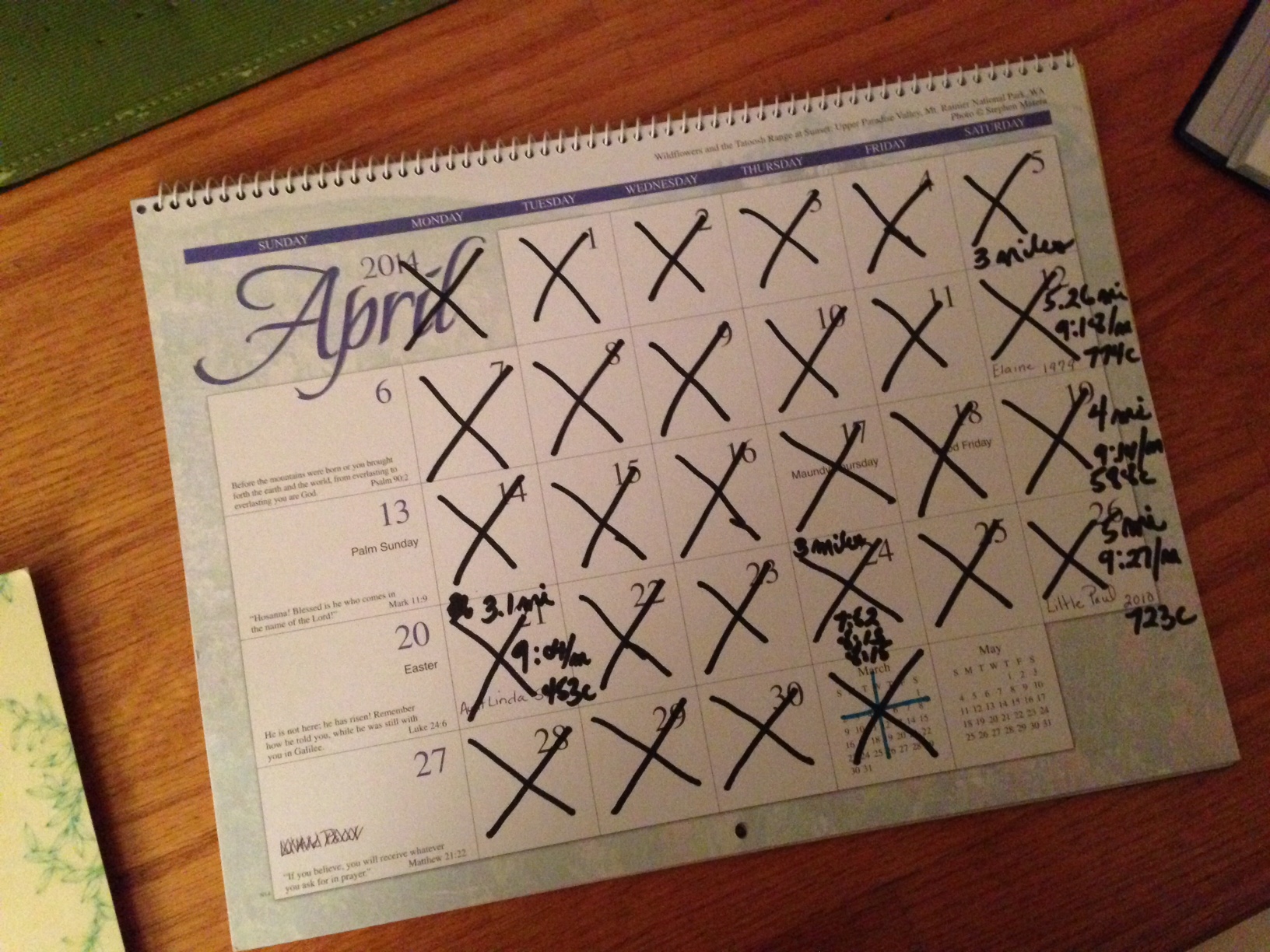 I skipped my 6:00 AM workout this morning for only the 3rd time since December 21, 2013. I've been ruthless these past 6 months about getting up early and getting a workout in.Consistently getting up early will change your life. But, it's difficult. Here's?my secret:I take a black marker and mark an "X" through that day's square on my calendar every morning when I return from my workout. It is surprisingly satisfying to make that mark each day, and to look back and see the series of "X's" earlier that month makes me feel as if I'm really accomplishing something.I get up every morning between 5:00 and 5:30 AM; some (most?) mornings, I'd much rather roll over and go back to sleep. But, knowing that the day's calendar will lack a fat "X" through it if I don't get up and go has given me the motivation to overcome the desire to go back to sleep.This technique will work for other things, too.Want‘to give up Coke?Pray every day?Stop watching?The Bachelor?Try the calendar technique and let me know how it goes. ?I have a bad shoulder and needed a rest day today. Still, part of me wishes May 22 had a big "X" through it....? I get up early on Sundays, too, but I don't workout on Sundays, and so I don't mark through the day. Plus, I like making Sundays different, set apart.
I skipped my 6:00 AM workout this morning for only the 3rd time since December 21, 2013. I've been ruthless these past 6 months about getting up early and getting a workout in.Consistently getting up early will change your life. But, it's difficult. Here's?my secret:I take a black marker and mark an "X" through that day's square on my calendar every morning when I return from my workout. It is surprisingly satisfying to make that mark each day, and to look back and see the series of "X's" earlier that month makes me feel as if I'm really accomplishing something.I get up every morning between 5:00 and 5:30 AM; some (most?) mornings, I'd much rather roll over and go back to sleep. But, knowing that the day's calendar will lack a fat "X" through it if I don't get up and go has given me the motivation to overcome the desire to go back to sleep.This technique will work for other things, too.Want‘to give up Coke?Pray every day?Stop watching?The Bachelor?Try the calendar technique and let me know how it goes. ?I have a bad shoulder and needed a rest day today. Still, part of me wishes May 22 had a big "X" through it....? I get up early on Sundays, too, but I don't workout on Sundays, and so I don't mark through the day. Plus, I like making Sundays different, set apart.
Follow This Simple Step to Get Your Dream Job Now!
One Simple Step To Your Dream Job
1. Lower your standards and come work for me. Details below.
Executive Assistant to Munger Place Pastor
This busy position provides administrative support to the Munger Place Pastor and to Munger Place Church in general, to help ensure the smooth functioning of the church and its ministries.Location:??Munger Place Church, Dallas, TXEssential duties?include the following, plus other duties as required or assigned:
- Calendar Management?(pastor and church): Maintain pastor‘s and church calendar, responding to all meeting requests, gathering relevant background materials. Confirm all appointments.
- Email/Voicemail Management?(pastor and main church account): Open and screen incoming e-mail and listen to voicemail, respond on pastor‘s behalf when possible, and forward to others when appropriate.
- Errands:?Run errands in own vehicle as needed/requested. This will include routinely picking up mail and copies from Highland Park UMC multiple times weekly.
- Office Management:? Provide administrative services such as distributing/processing mail, preparing correspondence and reports for pastor, updating membership database and running reports, processing bills for payment, receiving and directing visitors, procuring supplies for office and worship and meeting with vendors.
- Organization:? Organize, maintain and revamp as necessary church filing systems; help organize/maintain storage closets, maintain both hard and soft copies of marriage, baptism and other important records.
- Events:?Enter all events in EventU database; manage regularly occurring event registrations; prepare agendas, nametags, and support materials; communicating with key players as necessary.
- Meetings:?Assist pastor in preparing for meetings and events by providing agendas, support and background information. Attend designated meetings (with or in place of pastor), taking notes and minutes of relevant discussions, and as appropriate, interacting in ways that solve and prevent problems.
- Church Activities:? Assist as needed in church activities, coordinate and communicate with volunteers.
- Other:
- Triage, dispense and record benevolent aid according to process developed by Munger staff.
- Assist building services in keeping the church buildings uncluttered, organized, neat and orderly, bringing problems to attention of building technician.
- Be proactive within prescribed limits in foreseeing and resolving problems, as well as conducting business in ways that avoid issues.
Working Hours:??Usual hours will be Monday-Thursday 8:30-5, Friday 8:30-noon; however, these hours may be revised as needed when attendance is needed at church activities or events.We Require?a committed Christian who is comfortable working in a United Methodist Church environment, with the following qualifications:
- At least 1 year of responsible office experience
- High school diploma required, college preferred
- Must be a self-starter with a high level of initiative and follow-through, who can anticipate needs and efficiently get things done, as well as a desire for constant improvement in performance and efficiency.
- Excellent oral and written communication and listening skills, as well as good spelling, grammar, punctuation abilities.
- Highly organized and detail-oriented, capable of learning and using David Allen's GTD (Getting Things Done) system
- Excellent interpersonal and relational skills, including the ability to deal cordially and efficiently with others without being pulled into any issues or complaints they present.
- Professional attitude, appearance and demeanor, maintaining grace under pressure.
- High degree of discretion with confidential information.
- Ability to juggle multiple tasks and shift priorities as necessary, while maintaining a positive, can-do spirit.
- Capable of functioning both independently and as part of a team.
We provide?competitive pay and full benefit package, as well as a fitness facility, free garage parking, generous holiday schedule, and a fun, supportive and collaborative work environment!TO APPLY, please email the following to?jobs@hpumc.org,‘specifying Exec.Asst. in subject line:
- Resume & cover letter/email
- Salary requirement
- Your religious/church affiliation (HPUMC or Munger Place membership not required)
No calls, please.- See more at: http://www.hpumc.org/about-us/employment/job-opening-executive-assistant/#sthash.S1NjEzC5.dpuf
My One Major Problem With the "Noah" Movie
 I loved the first 2 hours of Darren Aronofsky's?Noah. I have no problem with the creative liberties Mr. Aronofsky takes with the source material--in fact I loved his creativity. Below, I'll tell you what I appreciated. But first....Here's My Problem With?Noah?(no spoilers here):In a masterful way, the film's message couldn't be more?clear, true, or terrifying: humans are a violent, selfish, sinful race, and there is no hope for us. We cannot save ourselves.And then the final 18 minutes makes this point: "After the Flood, the good news is that humanity--led by Noah--now gets to save itself."See the problem?
I loved the first 2 hours of Darren Aronofsky's?Noah. I have no problem with the creative liberties Mr. Aronofsky takes with the source material--in fact I loved his creativity. Below, I'll tell you what I appreciated. But first....Here's My Problem With?Noah?(no spoilers here):In a masterful way, the film's message couldn't be more?clear, true, or terrifying: humans are a violent, selfish, sinful race, and there is no hope for us. We cannot save ourselves.And then the final 18 minutes makes this point: "After the Flood, the good news is that humanity--led by Noah--now gets to save itself."See the problem?
- Minutes 0-120: humanity is a mess and cannot save itself.
- Minutes 121-138: humanity will now save itself.
Even artistically, the ending doesn't fit with the rest of the movie.In a very sad way, Darren Aronofsky's conclusion undermines what he has been trying to tell us and proves how deeply our delusion goes. "We are a mess and we will never be able to save ourselves....Unless we try really hard and save ourselves." This is the extent of our wisdom.The Great War began 100 years ago this summer. The best and the brightest of European culture and society were convinced that such a war was impossible, because humankind was now enlightened and rational. And then came the Somme.The last 100 years ought to have caused Mr. Aronofsky to be more cautious in his movie's conclusion, but the sad story of humanity is that we never learn.As I mentioned, I have no problem whatsoever with the major creative liberties Mr. Aronofsky took with the Genesis material. But, I do have a major theological problem with Mr. Aronofsky's ultimate conclusion. The Genesis account couldn't be clearer: humanity is just as messed up after the Flood as before.If the last 18 minutes were different (and it wouldn't have required much to change the final message),?Aronofky's?Noah would have been a great movie. As it is, I think it's one more example of humanity's problem. Here's What I Loved About the Movie (Spoiler Warning):
- Noah's retelling of Genesis 1 to his family. The visuals that go along with his retelling are beautiful, interpreting the deep theology and poetry of the Creation account in ways I've never seen before.
- "The Watchers." The Watchers are fallen angels, and though I was initially skeptical when they appeared on the screen, I quickly appreciated their part in the story. The Watchers are fallen angels not because they rebelled against God by wanting to take his place, but because they rebelled against God by wanting to help humanity too much. There is a lot of wisdom in that understanding of sin. Their curse is to become part of the earth, and so they appear as rock giants.
- Noah's self-understanding. Noah sees himself as totally flawed and unrighteous and believes his only role is to steward creation, and then die.
- Noah's family dynamic. I think the tension that Noah's devotion--obsession?--causes in his family rang true.
- The Flood itself. Terrifying and utterly believable.
- All the small, human details. The scene where Noah's family is in the Ark and hears the screams of those bereft outside? Wow.
- Actually, I loved pretty much everything about the first 120 minutes of the movie....
UPDATE:?Over at?First Things, Wesley Hill has the same problem with?Noah that I do, but says it better.
3 Things I Learned From a Week Without Screens
As part of?our church's Lenten campaign, my family and I just spent the last week abstaining from screens for purposes of entertainment. (No tv, blogs, streaming video, etc. Unfortunately, I still had to use email for work, etc. Wouldn't that be nice?....)Here are 3 things I learned from the experience. The 1st is obvious and expected, the 2nd and 3rd surprised me:
- I'm a lot more productive when I'm not tied to my phone or computer.
- My stress level is lower when I'm not absorbing content from the internet, because
- Much internet content focuses on fomenting outrage. We are a people of grievance and offense. A friend of mine called me midweek and asked me about something that had occurred that had gotten the internet outraged and it was a relief to say that I knew nothing about it and didn't care. I don't need more petty outrage in my life. If you took away tweets and blog posts and articles that express offense or outrage--and took away pornography, sadly--how much of the internet would be left?
It's startling how quickly something that's clearly not a necessity--screens for entertainment--can shape our ways of living and interacting. What about you--how are screens shaping how you live, work, or parent?
The Problem of the Breaking Bad Pastor
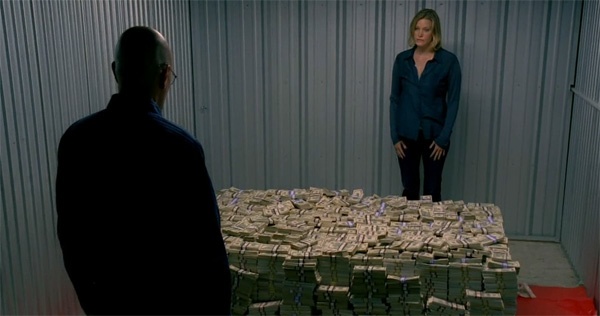 Question: Is it okay for pastors to get rich by doing the work of ministry?Over at First Things, James Duncan has written a brief essay with a provocative title: "Celebrity Pastors' Walter White Problem." He summarizes the problem for many celebrity pastors, namely that they make a lot of money from their churches, but then have a difficult time spending it, as no congregation likes the idea of a lavish pastoral lifestyle. Their situations are similar to that of Walter White, the anti-hero of the television show "Breaking Bad," who made millions from dealing drugs, only to find himself unable to spend the money without clearly advertising his illegal activity. The post is worth reading. On the One Hand, Yes: They Are Talented, Hard-Working GuysI don't know any celebrity pastors, but I do know a little bit about the pastoral ministry, and it's obvious to me that the celebrity pastor church-growth types are enormously talented entrepreneurial individuals. Were they not in the ministry, they would be very effective leaders of other large organizations. Also, it's impossible to be a celebrity pastor and not be an excellent public speaker. All of these guys, had they been generals or C-level executives, would be earning a lucrative living on the speaking circuit. Additionally, the celebrity pastor is almost always a best-selling author. It's hard work to write a best-selling book--shouldn't that hard work be rewarded?It seems unfair to restrict their earning potential just because they chose to work for the church. On The Other Hand, No: Pastoral Ministry Shouldn't Be About Making MoneyThe talent of the celebrity pastor is not the issue--the issue is integrity. It is hard not to question the integrity of a celebrity pastor who becomes wealthy through the work of ministry. Some Observations About Wealth and the Church
Question: Is it okay for pastors to get rich by doing the work of ministry?Over at First Things, James Duncan has written a brief essay with a provocative title: "Celebrity Pastors' Walter White Problem." He summarizes the problem for many celebrity pastors, namely that they make a lot of money from their churches, but then have a difficult time spending it, as no congregation likes the idea of a lavish pastoral lifestyle. Their situations are similar to that of Walter White, the anti-hero of the television show "Breaking Bad," who made millions from dealing drugs, only to find himself unable to spend the money without clearly advertising his illegal activity. The post is worth reading. On the One Hand, Yes: They Are Talented, Hard-Working GuysI don't know any celebrity pastors, but I do know a little bit about the pastoral ministry, and it's obvious to me that the celebrity pastor church-growth types are enormously talented entrepreneurial individuals. Were they not in the ministry, they would be very effective leaders of other large organizations. Also, it's impossible to be a celebrity pastor and not be an excellent public speaker. All of these guys, had they been generals or C-level executives, would be earning a lucrative living on the speaking circuit. Additionally, the celebrity pastor is almost always a best-selling author. It's hard work to write a best-selling book--shouldn't that hard work be rewarded?It seems unfair to restrict their earning potential just because they chose to work for the church. On The Other Hand, No: Pastoral Ministry Shouldn't Be About Making MoneyThe talent of the celebrity pastor is not the issue--the issue is integrity. It is hard not to question the integrity of a celebrity pastor who becomes wealthy through the work of ministry. Some Observations About Wealth and the Church
- The pastor's authority is mainly a moral authority, authority that is enhanced when the pastor is seen to be living more simply than his or her peers, authority that is diminished when the congregation sees the pastor living at a standard far above most of them. I think the appeal of Pope Francis is due in large part to his well-publicized simplicity.
- It's easy to criticize people who are in situations different than your own. Would I be able to resist the temptations to wealth that so many celebrity pastors face? I'm not sure.
- The vast majority of pastors in the world are faithful people who sacrifice for years, doing difficult work for very little pay.
- Compared to many (most?) pastors in the world, I am extraordinarily well-paid. My lifestyle and that of my grandfather, who pastored a rural church on the Eastern Shore of Virginia during the Great Depression, are vastly different; mine is much more comfortable than his ever was. It would be the height of hypocrisy for me to throw stones at wealthy celebrity pastors while justifying my own lifestyle.
- On the other hand, it is not hypocritical for me to admit that both I and the celebrity pastor have a problem with money.
- But this problem is not exclusive to those of us in the pastoral ministry: anyone reading this is many times more wealthy than the majority of the people on this planet. We need to beware the self-righteousness that comes from comparing ourselves to a few wealthy outliers while ignoring our own unseen and suffocating materialism.
Conclusion: It's All About MeI don't know any celebrity pastors, and so I can't speak to the condition of their hearts. What I do know is my own heart, and it is a greedy thing, and materialism is my disease. It's easy for me to criticize others' financial choices, but much harder for me to live at a lower standard of living than I can afford. Maybe the benefit of the recent attention paid to the lifestyles of celebrity pastors is that it forces me to ask: "Lord, what do you want me to do with what I've been given?" One day, I'll have to answer only for myself. I'll let God be the judge of the others.
Words I Can Believe in on Valentine's Day
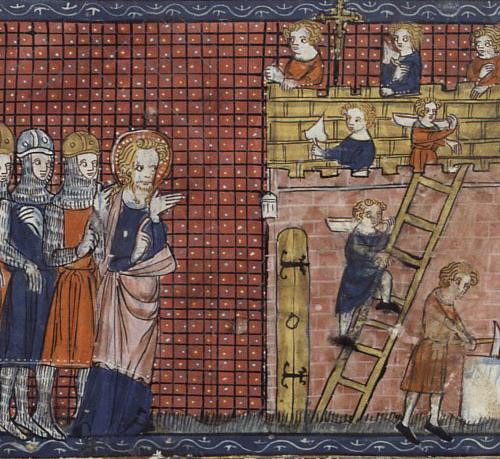 Though I may speak with bravest fire,And have the gift to all inspire,And have not love, my words are vain,As sounding brass, and hopeless gain. Though I may give all I possess,And striving so my love profess,But not be given by love within,The profit soon turns strangely thin. Come, Spirit, come, our hearts control,Our spirits long to be made whole.Let inward love guide every deed;By this we worship, and are freed.--Hal Hopson, 1972
Though I may speak with bravest fire,And have the gift to all inspire,And have not love, my words are vain,As sounding brass, and hopeless gain. Though I may give all I possess,And striving so my love profess,But not be given by love within,The profit soon turns strangely thin. Come, Spirit, come, our hearts control,Our spirits long to be made whole.Let inward love guide every deed;By this we worship, and are freed.--Hal Hopson, 1972
Are Miracles Possible? [Science & Faith, part 2 of 3]
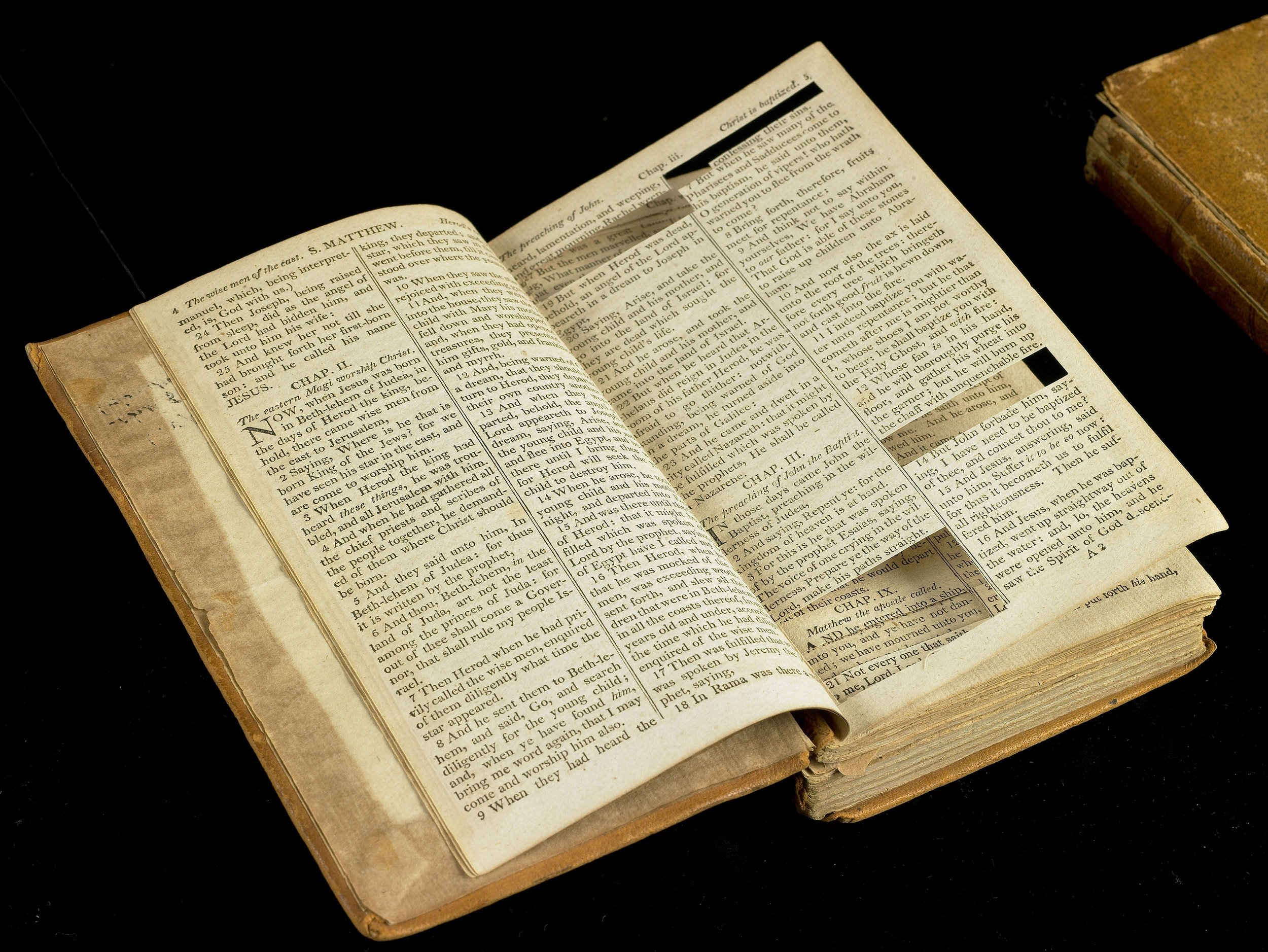 My fellow Virginian Thomas Jefferson liked Jesus but wasn't sold on all the miracles in the Gospels. So, he cut them out, leaving his Bible full of holes.Was he right? Are miracles impossible?Option 2In answering the question, "Can Science and Faith Be Reconciled?," some people take option #2 and reply, "No, because faith is based on the miraculous, and we know that miracles cannot happen." Circular ReasoningThe problem, if you're not careful, in stating categorically that miracles cannot happen is that it can lead you into a circular argument. When pressed, many of us would have to say that miracles cannot happen because we know that they don't happen. But, that's not really much of an argument.Before we can be certain that miracles?cannot happen, we have to do the hard work of investigating claims of the miraculous. For example, before we can be sure that the Resurrection--the most famous miracle in history--did not happen, we need to examine it.What About David Hume?
My fellow Virginian Thomas Jefferson liked Jesus but wasn't sold on all the miracles in the Gospels. So, he cut them out, leaving his Bible full of holes.Was he right? Are miracles impossible?Option 2In answering the question, "Can Science and Faith Be Reconciled?," some people take option #2 and reply, "No, because faith is based on the miraculous, and we know that miracles cannot happen." Circular ReasoningThe problem, if you're not careful, in stating categorically that miracles cannot happen is that it can lead you into a circular argument. When pressed, many of us would have to say that miracles cannot happen because we know that they don't happen. But, that's not really much of an argument.Before we can be certain that miracles?cannot happen, we have to do the hard work of investigating claims of the miraculous. For example, before we can be sure that the Resurrection--the most famous miracle in history--did not happen, we need to examine it.What About David Hume?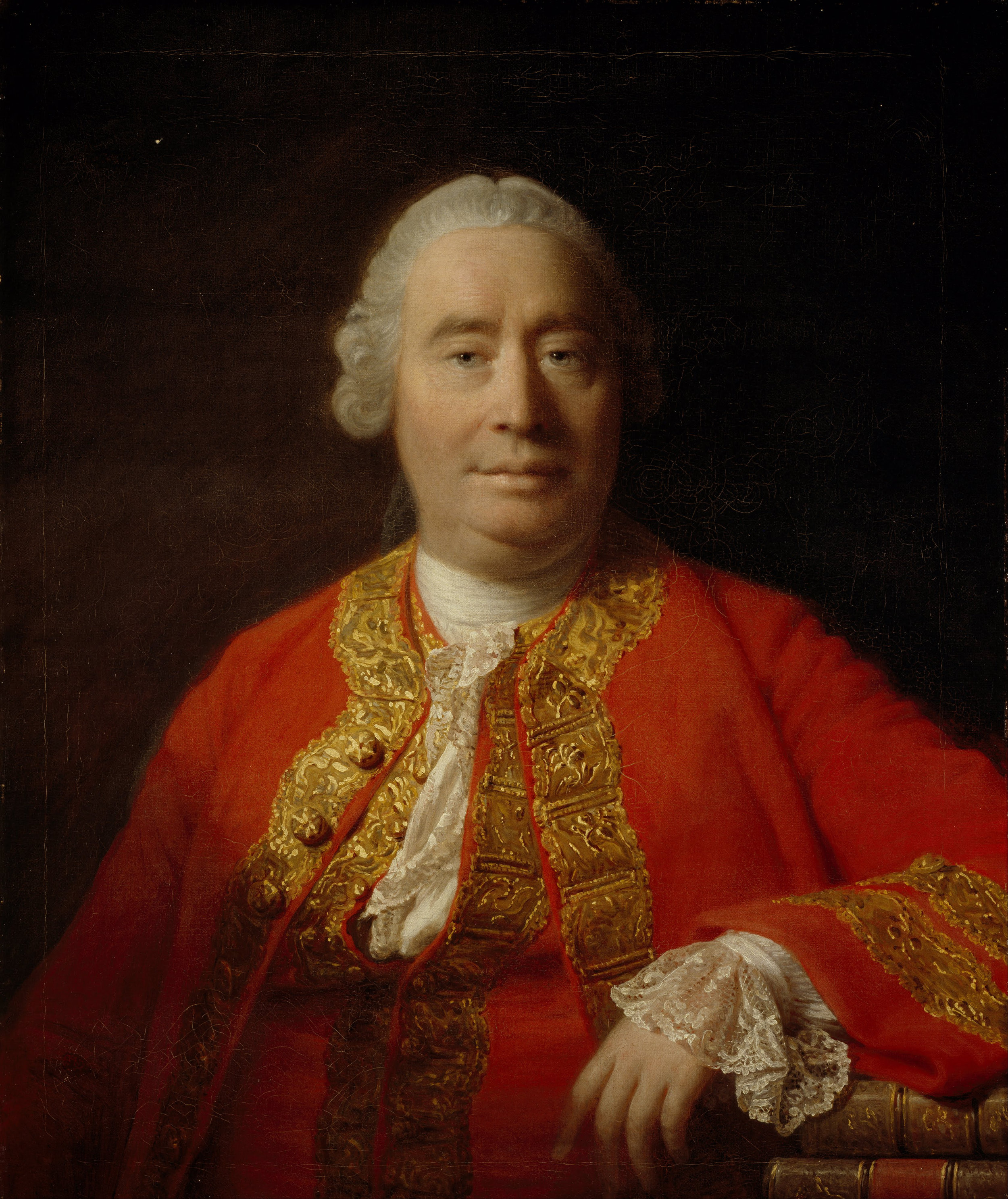 The great 18th century Scottish philosopher David Hume made some very effective arguments against the possibility of the miraculous, and his critique effectively kept generations of free-thinking Westerners from accepting the miraculous. But, although much of Hume's work has held up well, his argument against miracles has been discredited by modern philosophers. For example, the philosopher John Earman even wrote a book called?Hume's Abject Failure: the Argument Against Miracles.There are many reasons not to believe in a particular miracle, or even in all miracles, but categorically declaring that the miraculous?cannot?happen goes too far. Blind FaithMany religious people have gone in another direction. Admitting rationally that miracles don't happen--accepting the Enlightenment bias against the miraculous--they have white-knuckled-forced themselves to believe. Along this route, faith is what you are supposed to believe even though you know the things you are supposed to believe are impossible. This version of blind faith is dangerous and is one reason many people raised in rigidly fundamentalist churches and homes often completely reject their faith when they leave home: they encounter intelligent arguments against what they previously held in blind faith, and, at a loss, everything they once believed unravels. SummaryWe can't categorically reject miracles, and we also shouldn't accept some version of faith that is completely irrational and unthinking. When it comes to the question, "Can science and faith be reconciled," we need another option....
The great 18th century Scottish philosopher David Hume made some very effective arguments against the possibility of the miraculous, and his critique effectively kept generations of free-thinking Westerners from accepting the miraculous. But, although much of Hume's work has held up well, his argument against miracles has been discredited by modern philosophers. For example, the philosopher John Earman even wrote a book called?Hume's Abject Failure: the Argument Against Miracles.There are many reasons not to believe in a particular miracle, or even in all miracles, but categorically declaring that the miraculous?cannot?happen goes too far. Blind FaithMany religious people have gone in another direction. Admitting rationally that miracles don't happen--accepting the Enlightenment bias against the miraculous--they have white-knuckled-forced themselves to believe. Along this route, faith is what you are supposed to believe even though you know the things you are supposed to believe are impossible. This version of blind faith is dangerous and is one reason many people raised in rigidly fundamentalist churches and homes often completely reject their faith when they leave home: they encounter intelligent arguments against what they previously held in blind faith, and, at a loss, everything they once believed unravels. SummaryWe can't categorically reject miracles, and we also shouldn't accept some version of faith that is completely irrational and unthinking. When it comes to the question, "Can science and faith be reconciled," we need another option....
Can Science and Faith be Reconciled? [part 1 of 3]
I've been interested recently in some of the questions that 21st century Americans have about the Christian faith. One question that comes up frequently is, "Can science and faith be reconciled?"In researching this question, I've discovered three main answers.Option 1:No, because science and faith are and have been at war.This option is widely-held among modern people. But there is one problem with it: it is historically false.Without the Church, No Science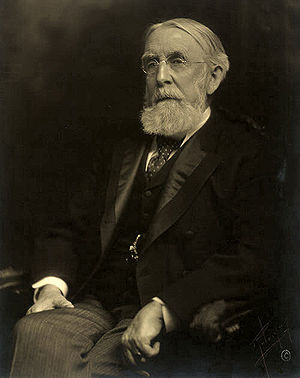 Andrew Dickson White?(1832-1918) was one of the co-founders of Cornell University. In 1896 he published a 2 volume work called?A History of the Warfare of Science with Theology in Christendom,?which put forward the idea that the Christian faith was responsible for interfering and holding back scientific achievement. White's work was extremely influential in the first part of the 20th century, and his argument did much to convince many that faith and science were at war, despite the obvious problems with his argument.The first problem with claiming that science and faith are at war is that, as many historians now argue, the culture of Christianity was directly responsible for the development of science in the West. Christians believe in a rational God who created the universe according to rational principles, a belief that is necessary to science. Rather than being antagonistic to science, the Christian faith allowed it to flourish. The greatest universities of the first 17 centuries of the last 2 millennia were virtually all developed by the Church to be places where faith could seek understanding, and most of the greatest scientific minds up until the Enlightenment were devout Christians.Second, A.D. White had an obvious bias against orthodox Christianity. For some reason, modern people, so quick (and rightly so) to be skeptical of many authoritative claims accept as gospel the claims of those who are obviously biased against the Church; many of us accept those arguments unthinkingly. In a culture that values science (as ours does), you can greatly undermine the faith by claiming the Church is anti-science, and A.D. White and many people have successfully done so. It says a lot about our modern anti-Church bias that we are eager to embrace any arguments that make the Church look badly. But What About Galileo?"That sounds great," some readers are thinking, "but what about Galileo?"
Andrew Dickson White?(1832-1918) was one of the co-founders of Cornell University. In 1896 he published a 2 volume work called?A History of the Warfare of Science with Theology in Christendom,?which put forward the idea that the Christian faith was responsible for interfering and holding back scientific achievement. White's work was extremely influential in the first part of the 20th century, and his argument did much to convince many that faith and science were at war, despite the obvious problems with his argument.The first problem with claiming that science and faith are at war is that, as many historians now argue, the culture of Christianity was directly responsible for the development of science in the West. Christians believe in a rational God who created the universe according to rational principles, a belief that is necessary to science. Rather than being antagonistic to science, the Christian faith allowed it to flourish. The greatest universities of the first 17 centuries of the last 2 millennia were virtually all developed by the Church to be places where faith could seek understanding, and most of the greatest scientific minds up until the Enlightenment were devout Christians.Second, A.D. White had an obvious bias against orthodox Christianity. For some reason, modern people, so quick (and rightly so) to be skeptical of many authoritative claims accept as gospel the claims of those who are obviously biased against the Church; many of us accept those arguments unthinkingly. In a culture that values science (as ours does), you can greatly undermine the faith by claiming the Church is anti-science, and A.D. White and many people have successfully done so. It says a lot about our modern anti-Church bias that we are eager to embrace any arguments that make the Church look badly. But What About Galileo?"That sounds great," some readers are thinking, "but what about Galileo?" The Galileo episode is not one that makes the Church look very good and I wish the Church had been wiser. However, I've learned some interesting facts about Galileo.First, the episode was less about science versus faith but more (in David Bentley Hart's phrase) about what happens when two men of "titanic egos" clash. The two men were Galileo Galilei and Pope Urban VIII. They had once been friends, but Galileo had deliberately insulted the Pope and his holiness was miffed. The whole sorry affair was, in some ways, a big personality conflict.Second, the Galileo episode took place within the context of the Protestant Reformation and the Roman catholic Counter-Reformation. It was a climate in which Rome was eager to maintain whatever control it could. Provoked by Galileo, Rome wanted to be sure that the arrogant scientist knew his place.The facts above don't explain away the church's foolishness in the Galileo episode, but they do help show it's not quite as bad as the pop culture version of the story goes. Plus, when speaking of Christianity, it's important for us to have a little humility and remember that the Church has been in existence for 2,000 years. Yes, there have been times in the last 2,000 years when Christians have seemed to be deliberately anti-intellectual and reactionary, but those times are, by far, the exceptions rather than the norm.ConclusionPut simply, Option 1 doesn't work because it's historically false: the Church is not and has never been at war with Science.To be continued in Part 2....
The Galileo episode is not one that makes the Church look very good and I wish the Church had been wiser. However, I've learned some interesting facts about Galileo.First, the episode was less about science versus faith but more (in David Bentley Hart's phrase) about what happens when two men of "titanic egos" clash. The two men were Galileo Galilei and Pope Urban VIII. They had once been friends, but Galileo had deliberately insulted the Pope and his holiness was miffed. The whole sorry affair was, in some ways, a big personality conflict.Second, the Galileo episode took place within the context of the Protestant Reformation and the Roman catholic Counter-Reformation. It was a climate in which Rome was eager to maintain whatever control it could. Provoked by Galileo, Rome wanted to be sure that the arrogant scientist knew his place.The facts above don't explain away the church's foolishness in the Galileo episode, but they do help show it's not quite as bad as the pop culture version of the story goes. Plus, when speaking of Christianity, it's important for us to have a little humility and remember that the Church has been in existence for 2,000 years. Yes, there have been times in the last 2,000 years when Christians have seemed to be deliberately anti-intellectual and reactionary, but those times are, by far, the exceptions rather than the norm.ConclusionPut simply, Option 1 doesn't work because it's historically false: the Church is not and has never been at war with Science.To be continued in Part 2....
Chris Christie and the Problem With Our Media Culture
(I'm very interested in American politics. This is a new blog, so you should know that though I plan on refraining from telling you why your political opinions are wrong and mine are right, I do plan on writing about trends I see in American politics and culture. Such as the following....)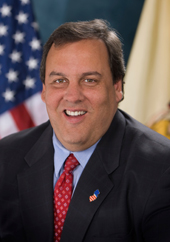 The way our media covers American politics is one of the main problems in American politics, as the coverage of the Chris Christie bridge scandal makes clear.This week, documents were published that show that top aides to the NJ Governor deliberately snarled traffic leading from the George Washington Bridge into Fort Lee, NJ. Christie denies any knowledge of their actions.I'm not concerned with parsing out the truth of the scandal or in Governor Christie's fitness for public office. Rather, I'm much more concerned with how the media has covered this and other political scandals: like spectators at a sporting event.I've read very little coverage of the Christie scandal that addresses the morality of the issue, what it means when public officials use their official positions in unethical ways. Instead, almost all the coverage is interested in questions like:
The way our media covers American politics is one of the main problems in American politics, as the coverage of the Chris Christie bridge scandal makes clear.This week, documents were published that show that top aides to the NJ Governor deliberately snarled traffic leading from the George Washington Bridge into Fort Lee, NJ. Christie denies any knowledge of their actions.I'm not concerned with parsing out the truth of the scandal or in Governor Christie's fitness for public office. Rather, I'm much more concerned with how the media has covered this and other political scandals: like spectators at a sporting event.I've read very little coverage of the Christie scandal that addresses the morality of the issue, what it means when public officials use their official positions in unethical ways. Instead, almost all the coverage is interested in questions like:
- how will this hurt Governor Christie's 2016 presidential chances?
- did Governor Christie respond quickly enough to diffuse the situation?
- was the tone that Governor Christie struck in his press conference the right one?
Notice that all these (and many other) angles on the story make the story about how the politician plays the game, not about the substance of the actions of the people involved. This tendency is not unique to this story, but is the way the American media covers modern politics.As a citizen, I'm much less concerned with how our political representatives play the game and spin the story than in the substance of their actions. What about you?
My Not-Too-Impressive 2013 Reading List (& Why You Need a Reading Plan for 2014).
My goal was to read 50 books in 2013 ; I didn't come even close: 23. I had read somewhere about some guy wanting to read 50 books in the coming year, so I decided to adopt his goal, and I'm glad I did, even though I fell so far short. I learned last year that I need to be more intentional in my reading. I've never looked back on an evening spent watching tv or browsing online and thought, "I'm SO glad I spent my time like that," but I have definitely been blessed by turning off my screens and focusing on a book. So, this year, I'm going for it again: I want to read 50 books in 2014. What about you? If you don't set a goal, you are GUARANTEED not to achieve it. Why not try to intentionally read more in 2014?
My 2013 reading list is below. (Reading over it now, I know I'd like to include more fiction and literature in my 2014 reading diet.)
Highly Recommended
What it Takes: The Way to the White House, by Richard Ben Cramer.
Comment: If you love politics (as I do), you must read this. Over 1,000 pages on the 1988 presidential campaign. Cramer had unprecedented access to the 8 leading candidates, and the book is just remarkable. Worth pushing through all the way to the end. I read it on summer vacation, and am so glad I did.
The Dog Stars, by Peter Heller.
Comment: Violent, terrifying, brutal, beautiful. I think about this novel all the time. Highly recommended (but don't read before bedtime--you won't want to put it down, and then you won't be able to sleep).
The Circle Maker, by Mark Batterson.
Comment: recommended for sure, particularly if you are struggling a bit in your faith. His basic argument: we should pray passionately and persistently, asking the Lord for big things. Who doesn't need to hear that?
Mr. Ives' Christmas, by Oscar Hijuelos.
Comment: I read it the weekend before Christmas, after seeing it mentioned on Rod Dreher's blog.
Others, in no particular order
One Word That Will Change Your Life, by Dan Britton, Jimmy Page, and Jon Gordon. Comment: see previous post here.
Scouting the Divine, by Margaret Feinberg.
The Power of Habit, by Charles Duhigg. Comment: really interesting stuff, particularly the historical and social examples. (I'm thinking of the stuff about Paul O'Neil at Alcoa and the kebab vendors in Iraq.) I think the stuff about "keystone habits" is particularly useful. The book is a bit too long, but I recommend it.
Give and Take: A Revolutionary Approach to Success, by Adam Grant.
Who Is This Man? by John Ortberg. Comment: Loved the simplicity and power of Ortberg's central question: "How did an unknown Galilean carpenter, who didn't lead and army, write a book, or rule a kingdom, become the most influential person in history?
24/6, by Matthew Sleeth. Comment: you get the point from the title, but it never hurts to think more about sabbath.
The Forever War, by Joe Haldeman.
Ender's Game, by Orson Scott Card. Comment: I knew nothing about the book, but hearing that the movie was coming out, I wanted to read it. The first 3/4 are excellent. The stuff about his siblings is a distraction, and I don't think the final 1/4 is that great, but I'd still recommend it if you are interested in science-fiction.
Deep & Wide, by Andy Stanley. Comment: If you are involved in church leadership at any level, definitely recommended.
The King Jesus Gospel, by Scot McKnight.
Paris in the Fifties, by Stanley Karnow. Comment: title says it all. Really interesting sketches of French life in a time that will never return. A bit too long, but I enjoyed it.
Entreleadership, by Dave Ramsey.
11: Indispensable Relationships You Can't Live Without, by Len Sweet. Comment: not recommended, though I did get a sermon series idea out of it.
The Treasure Principle, by Randy Alcorn.
The War of Art, by Steven Pressfield.
How Do You Kill 11 Million People? by Andy Andrews.
Willpower, by Roy Baumeister and John Tierney.
The Virtual Assistant Solution, by Michael Hyatt.
Why Men Hate Going to Church, by David Murrow.
What's Your One Word for 2014?
Resolutions don't work. So, rather than focusing on all the ways we want to live differently in 2014, a little book?I read recently suggests we'd be better off focusing on a one word theme for the year and live into it.What's your one word?For 2014, mine is "early."I want to:
- wake up early
- pray early
- workout early
- finish tasks early
- get to appointments early
- finish my sermon early (this would be life-changing!)
- get to bed early
What about you? Leave comments below.




![Are Miracles Possible? [Science & Faith, part 2 of 3]](https://images.squarespace-cdn.com/content/v1/5d70f59aefca59000162e4e6/1568657674041-KKAMA1U4NWETNGFV6AIP/image-asset.jpeg)

![Can Science and Faith be Reconciled? [part 1 of 3]](https://images.squarespace-cdn.com/content/v1/5d70f59aefca59000162e4e6/1568657672957-TN7837AT19XACFX53KU2/image-asset.jpeg)



